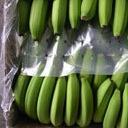
Special packaging that is used to extend the shelf-life of fresh products can also contribute significantly to reducing CO2 emissions, according to a new study published by the Agrotechnology & Food Sciences Group of the Wageningen University and Research Centre in the Netherlands.
The report, which looked at Xtend breathable packaging supplied by the Israeli company StePac Ltd, found that such contributions were especially relevant to produce transported by sea. It also calculated that CO2 emissions can be reduced during truck transport if no ice has to be used to keep the products fresh, as larger quantities of product can then be transported with each shipment.
The researchers considered various transport scenarios, using examples such as white asparagus from Peru, mangoes from Israel and cherries from Chile. They found that special packaging like Xtend allows the producer to transport the products by sea instead of by air because it significantly extends the lifespan of the perishable products.
'Sea transport not only greatly reduces shipping costs, but also reduces CO2 emissions; it therefore has a beneficial environmental effect,' said a spokesman.
For all scenarios in which sea transport was used exclusively, the calculations indicated a reduction in CO2 emissions of more than 90 per cent. For combined transport using both sea and air transport, the reduction was still more than 30 per cent.
The special packaging also makes it possible to avoid using ice in waterproof cardboard boxes with a wax layer, a method used to transport fresh products such as broccoli by truck. In this scenario as well, the special packaging was found to not only reduce costs but also cut CO2 emissions, in this case by as much as 40 per cent.



